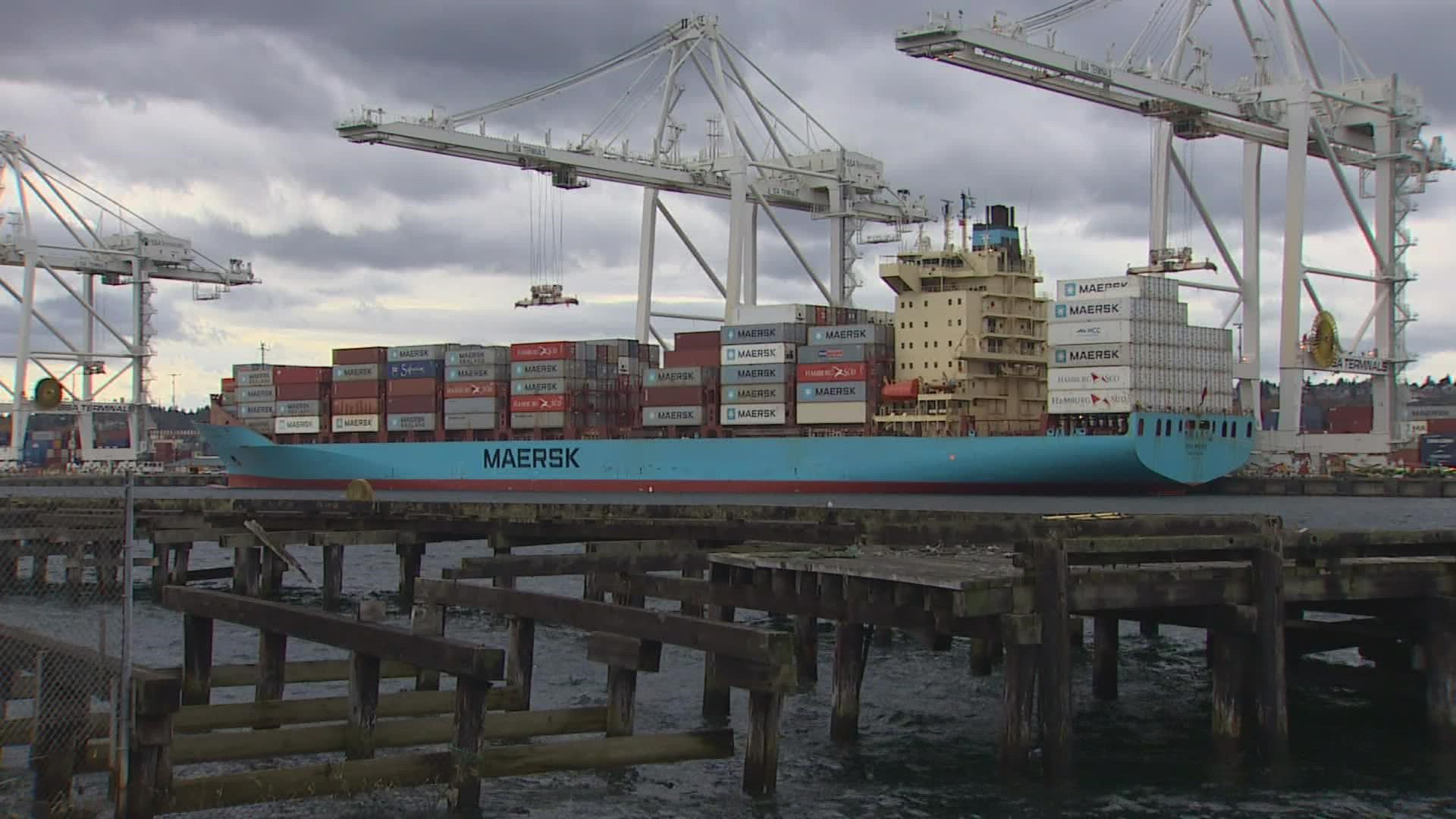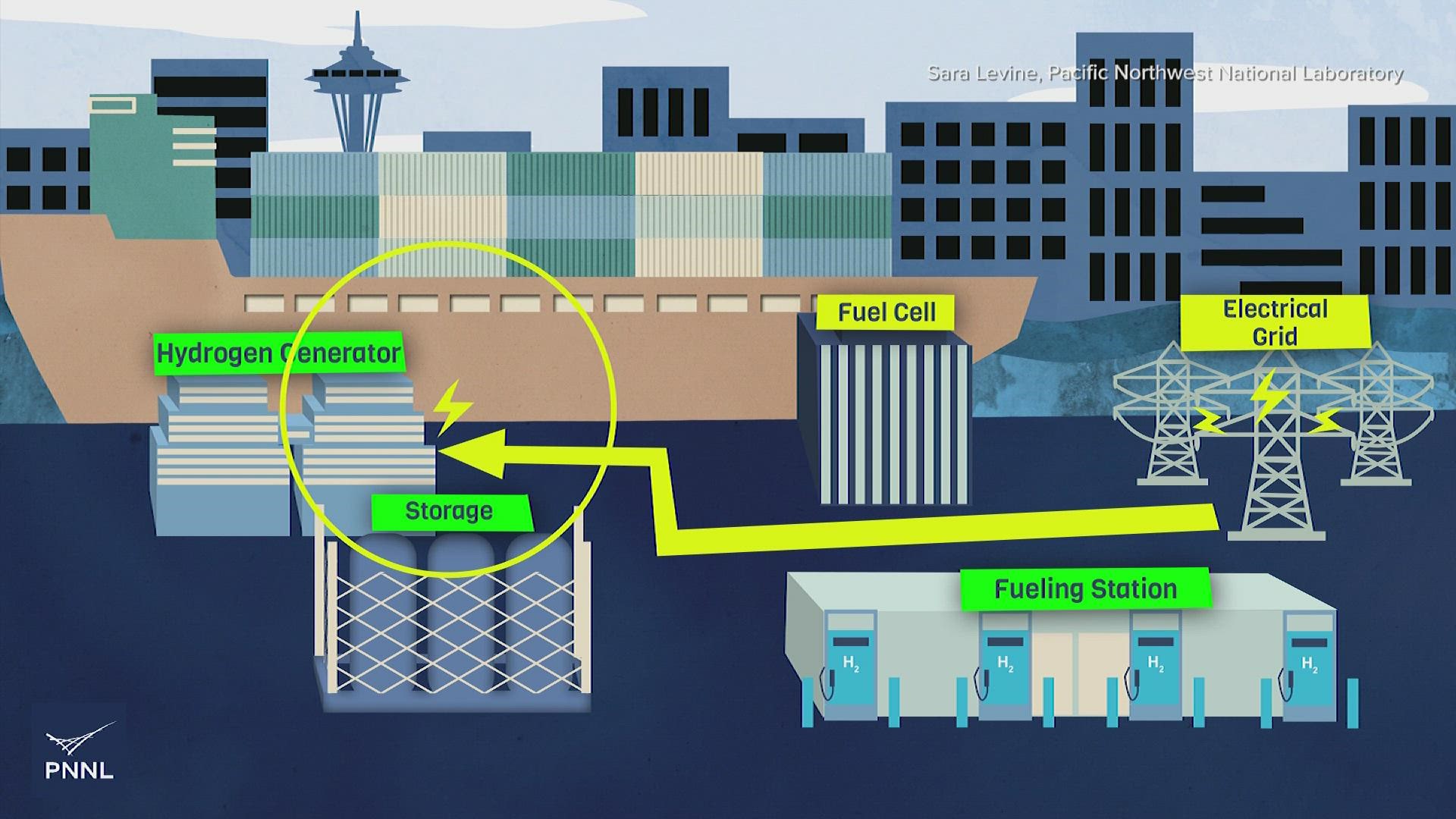SEATTLE — The U.S. Department of Energy has awarded a $1.12 million grant for a collaborative effort between The Port of Seattle and Seattle City Light to explore how hydrogen can be used to cut carbon emissions and act as a backup energy source for City Light customers.
The port and City Light are working with the Pacific Northwest National Laboratory and Sandia National Laboratories on the project.
“You can use it in a fuel vehicle – much like you use it in any internal combustion engine today, and you can also use it in storage to convert it back to electricity,” said Emeka Anyanwu, City Light’s Energy Innovation and Resources Officer.
For the port, it could eventually lead to replacing diesel-burning trucks that haul containers between ship terminals and railyards into hydrogen-powered vehicles. Instead of exhaust, the byproduct of hydrogen fuel would be water.
The port could also power ships using hydrogen.
“So we’re creating an ecosystem of capability that’s going to serve, not just the port, but the port's competitiveness,” said Port Commissioner Fred Felleman, who came to his post after decades of environmental activism in the northwest.
Felleman said the port could become a green gateway, as big shippers like Amazon start demanding that shipping companies move away from fossil fuels to alternatives including Hydrogen, in a world where hydrogen-powered trucks, ferries and even aircraft are becoming realities.
City Light’s Anyanwu says the collaborative nature of the venture means the utility isn’t just meeting its customers at the meter.
An animation shows how electricity can be used to create hydrogen by splitting water, storing the hydrogen, and then using it as a battery to be converted back into electricity through large fuel cells, for the times when the wind isn’t there to blow wind turbines, or drought limits power available to dams and the sun doesn’t shine on solar panels. “So you have it for the times when you need it,” Anyanwu said.


